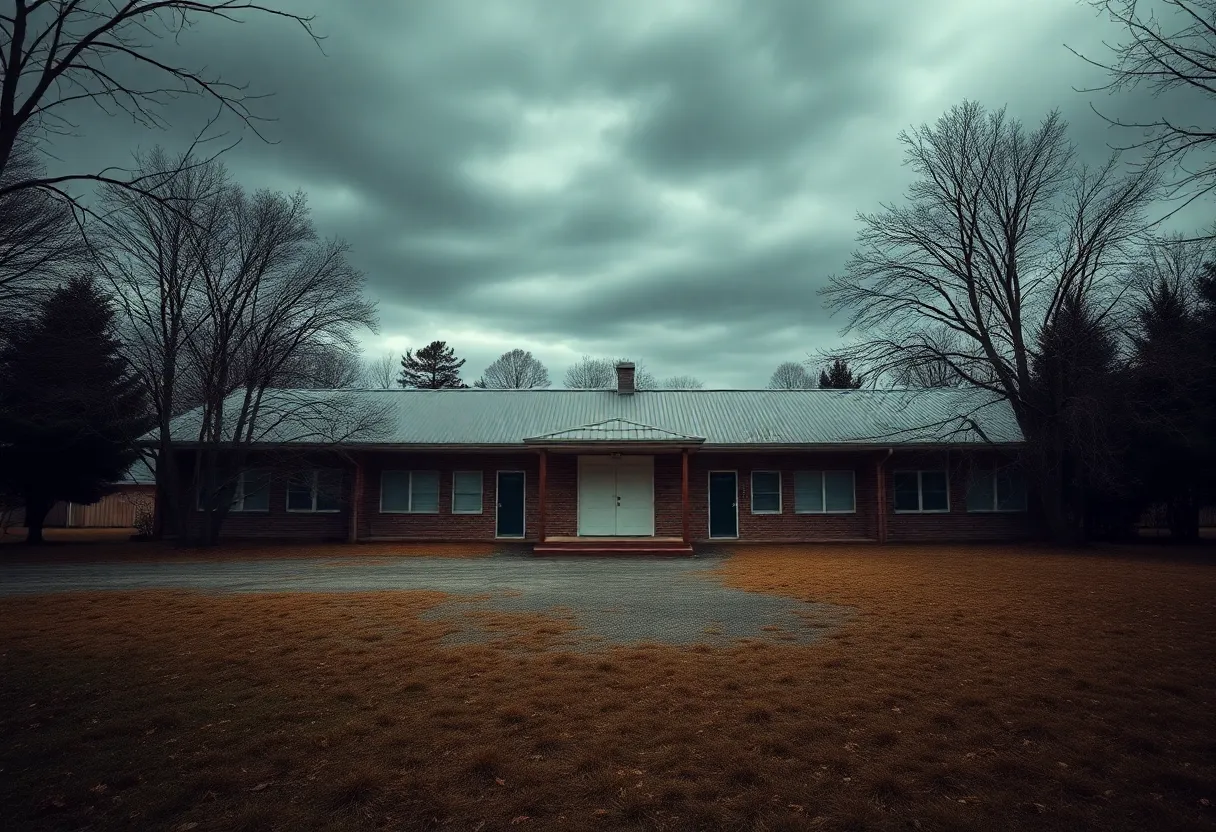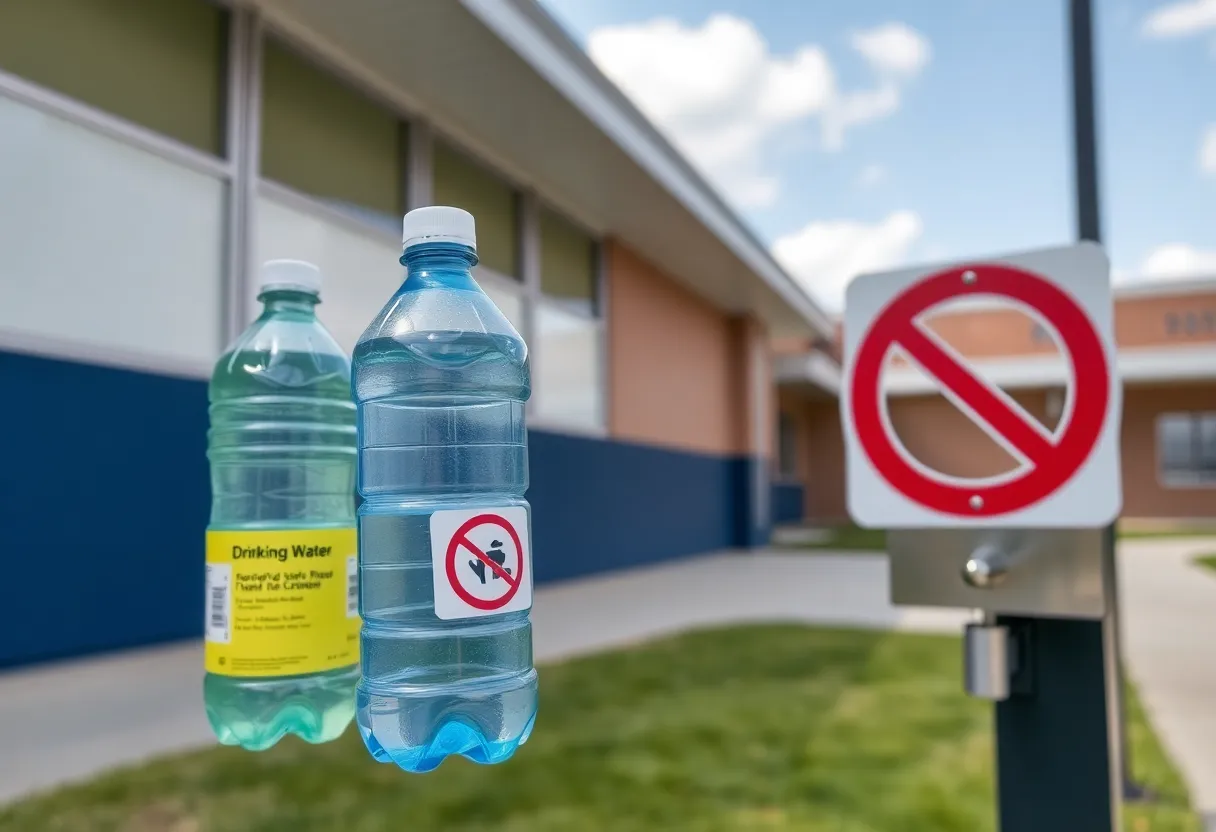News Summary
Asheville Academy, a therapeutic school in North Carolina, is now suspended from admissions and penalized $45,000 following serious regulatory violations. The penalties come after two students tragically took their lives, raising alarms about the safety and operational protocols at the facility. An investigation revealed significant deficiencies in staff training and the protective measures in place for students, leading to questions about accountability and oversight within mental health institutions for minors.
Weaverville, North Carolina — Asheville Academy, a therapeutic school for minors, is facing severe regulatory penalties amounting to $45,000 and a suspension of its admission process following findings of major violations during a state investigation. This follows the tragic suicides of two students—a 13-year-old and a 12-year-old—in May 2025, prompting significant concern regarding the facility’s operational protocols and safety measures.
The North Carolina Department of Health and Human Services (DHHS) confirmed that Asheville Academy violated several licensing rules outlined in state regulations designed to protect individuals facing mental health challenges. Specifically, it breached regulations pertaining to Article 2, which governs operational licensing for mental health, developmental disabilities, and substance abuse services, as well as Article 3, concerning the rights of clients.
As a result of these violations, Wilderness Training & Consulting, LLC, the parent company of Asheville Academy, has received three Type A1 administrative penalties of $15,000 each for failing to ensure staff competency and supervision, failing to protect clients from harm, and other rights violations within the facility. The company is required to settle the penalties within 60 days and retains the option to appeal the findings within 30 days.
Following the suicides, which occurred within a month of each other, Asheville Academy voluntarily surrendered its license on June 4, 2025. A follow-up state survey confirmed that three out of five complaints against the facility were substantiated, highlighting serious deficiencies in staff training and the overall protective environment offered to its clients.
The investigation noted that staff members lacked proper training and awareness of critical safety protocols. For instance, at least one mentor did not possess essential CPR/AED and First Aid training prior to the tragic incidents. Interviews conducted with staff revealed a concerning lack of knowledge regarding life-saving equipment, including an Automated External Defibrillator (AED) located in the facility’s medical room. Furthermore, a shift coordinator disclosed that they were the only medication-trained staff present and were not up to date with CPR certification requirements.
The executive director of Asheville Academy acknowledged during the investigation that they were unaware of the necessary curriculum for CPR certification for staff, raising further questions about employee preparation to handle crises. Communication and implementation of safety policies were cited as key issues, resulting in the facility’s inability to adequately meet the physical, emotional, and intellectual needs of its clients.
In response to the initial suicide, the academy had attempted to implement updated supervision policies, but staff struggled to grasp and put into practice the new guidelines effectively. The North Carolina DHHS Secretary affirmed that investigations would continue, despite the voluntary surrender of the facility’s operating license.
Asheville Academy has discharged all its students as of May 31, 2025, and there have been no announced plans for the facility to reopen. An internal review found no records indicating that corrective actions were properly documented following the incidents, which raises concerns about accountability and oversight within the institution. The academy is also liable for an ongoing fine of $500 for each day that the deficiencies remain unresolved.
The devastating incidents at Asheville Academy have sparked widespread scrutiny and discussions regarding mental health facilities caring for children in the United States, especially given that suicide ranks as the second leading cause of death among youth aged 10 to 14. Former students and parents have shared varied experiences of the facility, with some expressing satisfaction with the care received, while others have voiced significant reservations about the adequacy of safety measures and overall care quality.
Deeper Dive: News & Info About This Topic
HERE Resources
Investigation Launched into Asheville Academy After Tragedies
Asheville Academy Faces Penalties for Regulatory Violations
Asheville City Continues Undefeated Streak in USL League 2
Asheville Police Department Hosts Junior Police Academy
Asheville Academy Faces Penalties After Violations
Record Graduation of Officers Strengthens Asheville Police Department
Asheville Academy Closes After Student Suicides
UNC Asheville Appoints Interim Head Baseball Coach
Asheville Academy Suspends Admissions After Safety Violations
Buncombe County Board of Education Plans for Expansion
Additional Resources
Author: STAFF HERE ASHEVILLE WRITER
The ASHEVILLE STAFF WRITER represents the experienced team at HEREAsheville.com, your go-to source for actionable local news and information in Asheville, Buncombe County, and beyond. Specializing in "news you can use," we cover essential topics like product reviews for personal and business needs, local business directories, politics, real estate trends, neighborhood insights, and state news affecting the area—with deep expertise drawn from years of dedicated reporting and strong community input, including local press releases and business updates. We deliver top reporting on high-value events such as the Asheville Bread Festival, LEAF Festival, and mountain sports tournaments at Biltmore Estate. Our coverage extends to key organizations like the Asheville Area Chamber of Commerce and Explore Asheville Convention & Visitors Bureau, plus leading businesses in hospitality and brewing that power the local economy such as the Biltmore Estate and Sierra Nevada Brewing Company. As part of the broader HERE network, including HERECharlotte.com, HEREGreensboro.com, HERERaleigh.com, and HEREOBX.com, we provide comprehensive, credible insights into North Carolina's dynamic landscape.





